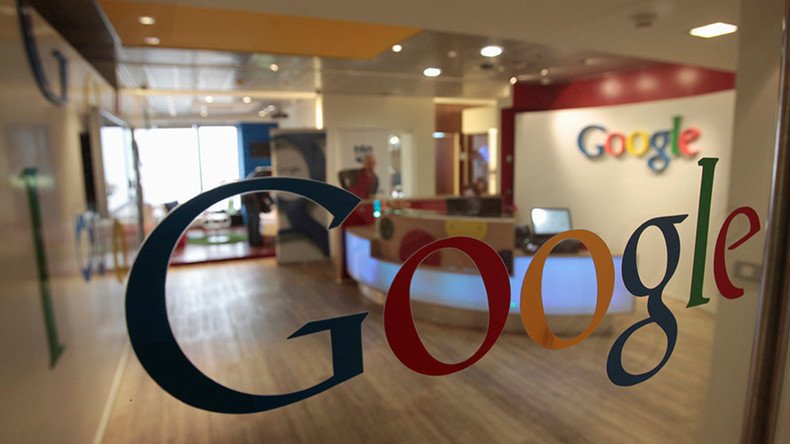Gender gap is natural, Google employee says in 10-page ‘internally viral’ memo

A 10-page memo that went viral inside Google and has been obtained by Gizmodo sees a Google software engineer arguing that women are underrepresented in tech not due to bias, but rather because of inherent psychological differences from men.
READ MORE: Google accused of ‘systemic’ pay discrimination against women by US Labor Department
The memo has been shared repeatedly on the internal network and Google+. Motherboard first reported that the memo existed, and Gizmodo published it in its entirety.
The memo titled ‘Google’s Ideological Echo Chamber’ is essentially the personal opinion of a male software engineer working for Google.
In the document, the employee argues that he “values diversity and inclusion, am not denying that sexism exists, and don’t endorse using stereotypes.” However, some topics, he adds, now involve “shaming into silence.”
“This silencing has created an ideological echo chamber where some ideas are too sacred to be honestly discussed,” and the lack of discussion brings about “the most extreme and authoritarian elements of this ideology,” the memo says.
I am really, really upset about the google memo thing. Upset. But not surprised. pic.twitter.com/VrQyKMqN0i
— ✨ Crispin (@crisp22) August 6, 2017
The software engineer goes on to claim that the reason why women don’t have a 50-percent representation in tech may be the “differences in distributions of traits between men and women,” and “discrimination to reach equal representation is unfair, divisive, and bad for business.”
The traits in question include “biological differences” that are “universal across human cultures” and are “highly heritable.”
Women in general have more “openness directed towards feelings and aesthetics rather than ideas,”“a stronger interest in people rather than things, relative to men,” so they end up working for front desk rather than coding, the memo’s author argues.
I read the damn memo, and, holy crap citation needed. "Universal across human cultures"? Really?
— John Melesky (@jmelesky) August 6, 2017
Women also have “extraversion expressed as gregariousness rather than assertiveness,” hence, “higher agreeableness,” and consequently, “women generally have a harder time negotiating salary, asking for raises, speaking up, and leading,” according to the memo.
“We need to stop assuming that gender gaps imply sexism,” the document says.
Another issue the author highlights is that “feminism has made great progress in freeing women from the female gender role, but men are still very much tied to the male gender role.”
“If we, as a society, allow men to be more ‘feminine,’ then the gender gap will shrink, although probably because men will leave tech and leadership for traditionally feminine roles.”
Dressing up bad reasoning with bullet points, footnotes, and highfalootin' language is the quintessence of polishing a turd.
— John Melesky (@jmelesky) August 6, 2017
The author concludes that “despite what the public response seems to have been, I’ve gotten many personal messages from fellow Googlers expressing their gratitude for bringing up these very important issues which they agree with but would never have the courage to say or defend because of our shaming culture and the possibility of being fired. This needs to change.”
So far more than half of my friends working in non-Valley tech scene agree with the Google memo.
— Tom (@tqenn) August 6, 2017
Following the heated debate that surrounded the memo both inside and outside Google, the company’s new Vice President of Diversity, Integrity & Governance, Danielle Brown, issued a statement saying, “Many of you have read an internal document shared by someone in our engineering organization, expressing views on the natural abilities and characteristics of different genders, as well as whether one can speak freely of these things at Google. And like many of you, I found that it advanced incorrect assumptions about gender. I’m not going to link to it here as it’s not a viewpoint that I or this company endorses, promotes or encourages.”
So much 🔥. “What you just did was incredibly stupid and harmful.” https://t.co/VSvi4jgtWq
— Ty ✌️ (@tsmith) August 6, 2017
The post comes just a couple of months after Google was wrapped in a scandal involving a probe into “extreme” wage discrimination, conducted by the US Department of Labor. The findings so far have been that Google regularly pays women less than men in comparable roles.













